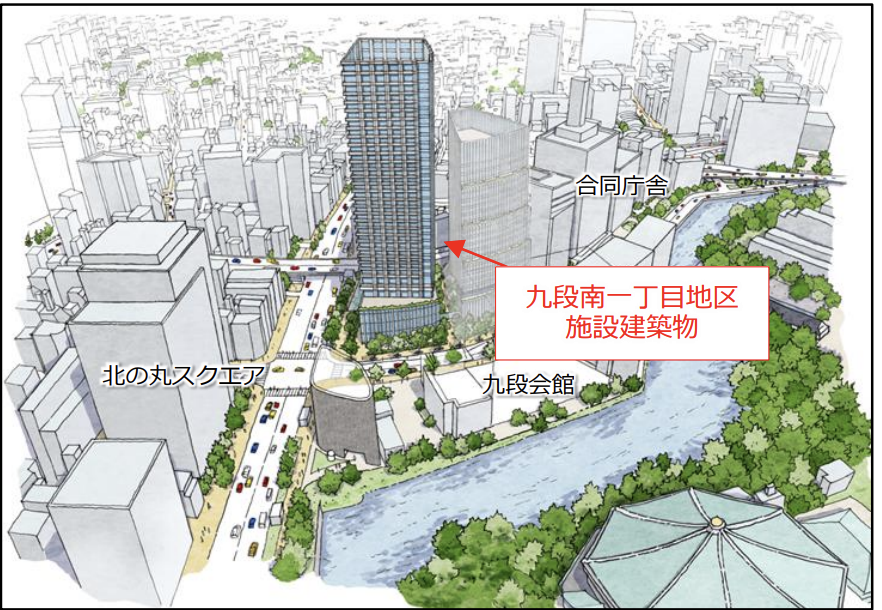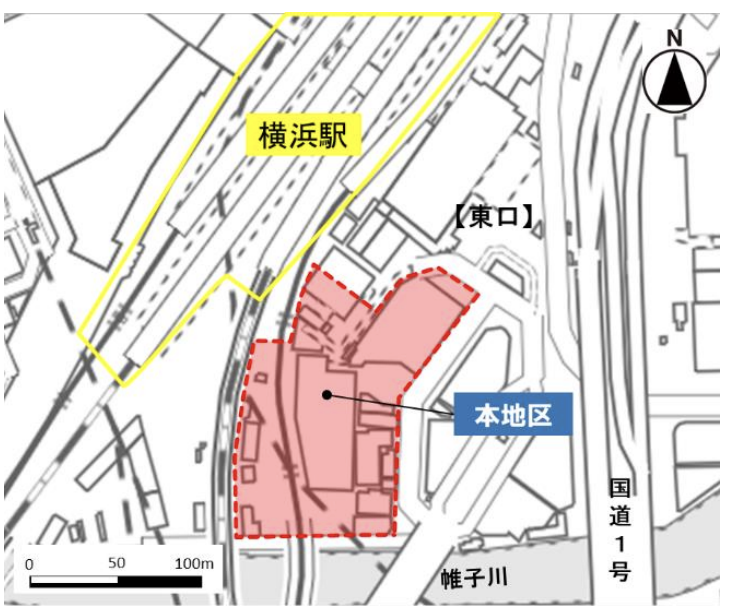In recent years, the keywords " AI (Artificial Intelligence)" and " real estate " have attracted a great deal of attention in the real estate industry, and the advancement of AI technology is about to revolutionize the fundamental operations of the real estate business, such as searching for properties and matching them with customers. I, too, have high expectations for the possibility of using AI to review conventional inefficient business processes and propose optimal real estate properties to customers more accurately and promptly. In this article, we will discuss the possibilities of real estate property matching by AI, and consider the conventional challenges and solutions by AI technology, advanced case studies in Japan and overseas, applications and challenges in the business for ultra-high-net-worth individuals, and our future prospects as INA & Associates.
Challenges facing conventional real estate property matching
First, let us review the traditional challenges of property matching in real estate (brokerage business that connects clients and properties). The following problems have been pointed out in the industry for a long time.
-
Reliance on personal judgment and variation - In real estate sales, the selection of properties and price evaluation are largely dependent on the experience and intuition of individual staff members, and in some cases, proposals and evaluations may differ from person to person, even for the same property. This impersonal process makes it difficult to ensure fairness and uniformity of service quality.
-
Uncertainty due to "information asymmetry" - In real estate transactions, there is a difference in the amount of information held by sellers, buyers, and brokers, and it is particularly difficult for ordinary customers to obtain sufficient knowledge about the market and fair prices. In addition, it has been pointed out that because property history and detailed information is not systematically shared, information becomes personalized to each person in charge, resulting in differences in the content of information provided. This information asymmetry can lead to customer distrust.
-
Insufficient understanding of customer needs and inefficient matching - It is not easy to accurately grasp the conditions desired by customers. In the conventional property search process, narrowing down the criteria drastically reduces the number of relevant properties, while loosening the criteria results in a large number of candidates, making it difficult to find a property that accurately reflects the customer's needs. As a result, the staff in charge had to manually list a large number of properties, and it took a great deal of time to coordinate viewings and arrange contracts. Inefficient matching processes often resulted in lost opportunities due to customers being kept waiting.
As described above, human judgment, information gaps, and difficulties in understanding needs have been major issues in the real estate matching process. In recent years, however, AI technology has been used in earnest to solve these problems.
AI Technology Improves Property Matching Accuracy
AI is good at analyzing large amounts of data and recognizing advanced patterns, and is revolutionizing the real estate matching process. In particular, advances in the fields of natural language processing, recommendation engines, and image recognition are making it possible to match properties with a high degree of accuracy that was previously difficult. Let's take a look at how each of these technologies contributes to improved matching accuracy.
Advanced Search and Interaction Using Natural Language Processing
Natural language processing technology allows users to communicate their preferences in a more intuitive way. For example, Zillow, a leading real estate platform in the U.S., has developed an AI function that allows users to search for properties using everyday words such as "three bedrooms within a 30-minute commute " instead of relying on specialized search filters. The AI analyzes millions of property information and presents the most suitable candidates based on the intent of the natural sentences entered by the user. This natural language search greatly streamlines tasks that previously relied on interviews with staff members and manual searches, and is expected to result in more precise matching.
Recommendation Engine Suggests Optimal Properties
A recommendation engine is a system that analyzes user preferences and behavioral history data to suggest the best options for each individual. In real estate property matching, AI is able to infer each customer's latent needs and suggest "properties recommended to you" by learning a vast amount of data, including past transaction history, browsing history, and the content of inquiries. For example, Tokyu Livable offers an AI matching diagnosis service in which users are asked to answer a few questions and the AI will find "properties that are a perfect match" for them. The service is expected to improve the quality of service and increase the closing rate by presenting the most suitable property candidates in a short time based on the user's budget and desired conditions.
Advancement of Property Data through Image Recognition AI
AI is also providing new value to real estate matching in the field of image recognition. While most real estate information consists of text and numerical values, in reality, the impressions and features obtained from property photos have a significant impact on decision making. In recent years, technology has emerged that enables AI to analyze property photos and automatically tag their features, and to translate their attractiveness into text. For example, At Home, Inc., a leading real estate information service in Japan, has developed a function that uses AI to analyze property images to automatically identify the type of each image (living room, kitchen, etc.) and automatically generate captions (explanatory text) that convey the appeal of the photo. The system uses a combination of multiple deep learning models to extract image features, which greatly reduces the time and effort required to register photos, while at the same time accurately expressing the appealing points of each property. Since the image recognition AI can convert unstructured visual information into data, factors that were previously difficult to specify in catalogs, such as "open kitchen" and "high-rise with a great view," can now be incorporated into the matching criteria. In addition, overseas, visual search is being attempted to find properties with similar interior design and atmosphere to the user's preference from property photos. In this way, the use of image recognition AI is contributing to the enrichment of property information and a dramatic improvement in matching accuracy.
Significance and Challenges of Introducing AI into the Real Estate Business for Ultra-High Net Worth Individuals
The use of AI in the real estate industry has great potential in the area of high-value properties for Ultra-High-Net-Worth Individuals (UHNWI). Ultra-HNWI clients have highly specialized and individualized needs, and transactions require a high degree of privacy and trust. Therefore, there are both significance and challenges to overcome in implementing AI in this area.
The first significance is that AI can provide personalized services. High-net-worth clients expect a "personalized concierge" to provide detailed responses, and AI can learn their preferences from past interactions and property histories to provide customized proposals to each individual. If advanced AI can extract and deliver property information only to wealthy customers with high purchasing intent, efficient matching will be possible even for off-market properties.
On the other hand, there are challenges. Ultra-high-net-worth customers tend to ultimately place more trust in human experts when making extremely high-level decisions; the information and analysis provided by AI is only a support, and the intervention of experienced agents is essential for negotiations and final decisions on high-value transactions. Therefore, it is important to build a system in which AI and humans collaborate seamlessly, with AI providing routine information and analysis, and humans taking over the baton at critical junctures. In addition, it is essential to give sufficient consideration to privacy when utilizing AI. In general, the use of AI in the area of ultra-high-net-worth individuals requires speed, individualized response, and reliability. Although this hurdle is high, if AI can be effective, it will be an extremely significant added value that differentiates the company from its competitors.
Prospects for INA&Associates through the fusion of human capital and AI
Finally, I would like to talk about INA&Associates' strategy for utilizing AI and the value we provide to our clients. We are convinced that the fusion of the latest AI technology with the "human capital," or expertise and experience of each of our employees that we have cultivated over the years, will create differentiated value in the real estate industry in the future. In fact, from my own experience, I am keenly aware that "harmony between human resources and technology" is the key to paving the way for the future of the industry.
Specifically, we intend to pursue the following initiatives
-
Advanced market data analysis using AI - AI will analyze vast amounts of real estate transaction data and information on the surrounding environment to improve the accuracy of forecasting market trends and appropriate prices. AI will be able to detect and anticipate hidden patterns in price assessments and investment decisions, which previously relied on the experience of the person in charge, and make more evidence-based proposals. This enables strategic proposals to clients with an eye on future value (e.g., "properties in areas scheduled for redevelopment in the future").
-
Combination of recommendation AI and sales know-how - AI provides the best property information for each customer in a timely manner by linking proprietary customer data with an AI engine AI identifies promising candidates based on objective data, and a human makes the final decision to make a customer-oriented proposal. AI's efficiency and human insight combine to deliver higher quality service.
-
Creation of customer response time by improving operational efficiency - AI automates the collection of materials and response to routine inquiries, thereby improving productivity. The extra time created can be used for tasks that only humans can perform, such as customer dialogue and consulting, to provide more attentive services.
While there are challenges to overcome when introducing AI to the field, such as cost and data preparation, we will continue to leverage technology from the customer's perspective to provide the best possible option for our customers. We will continue to be a partner that offers the best options for our clients by utilizing technology from their perspective. The combination of AI, which will continue to evolve in the future, and we humans, real estate professionals, will push real estate property matching to a new level. We will stand at the forefront of this new dimension and continue to take on the challenge of providing our clients with the ideal property matching service that will make them feel happy to have met us.

Daisuke Inazawa
Representative Director of INA&Associates Inc. Based in Osaka, Tokyo, and Kanagawa, he is engaged in real estate sales, leasing, and management. He provides services based on his extensive experience in the real estate industry. Based on the philosophy that “human resources are a company's most important asset,” he places great importance on human resource development. He continues to take on the challenge of creating sustainable corporate value.

.png)













